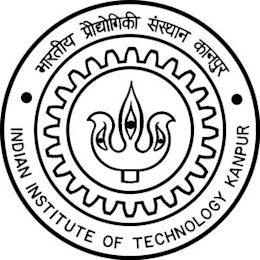ICMR chief Balram Bhargava authorized the paper with Samiran Panda and Tanu Anand, highlighting multi-layered mitigation strategies to create optimal learning in schools.
Experts at the Indian Council of Medical Research (ICMR) called for the reopening of schools in a phased manner in their new paper.
They prioritized primary sections with proper implementation of multi-layered COVID-19 mitigation measures.
The paper ‘Reopening of schools during COVID-19 pandemic: A persistent dilemma’ was an opinion piece published in The Indian Journal of Medical Research. Experts cited a UNESCO report that stated that school closures in India for more than 500 days had affected over 320 million children.
As per the survey shown in the paper, many students missed out on social interactions, lacked physical activity, and had a sense of loosening the bonds of friendship due to prolonged school closures.
ICMR chief Balram Bhargava authorized the paper along with Samiran Panda and Tanu Anand.
Gathering scientific evidence from within India and abroad, these experts called COVID-19 transmission an “over-dispersed” phenomenon and that testing strategies in schools could serve as crucial interventions to check the potential spread of the virus.
They also suggested ample evidence noting that children aged 1-17 years have similar susceptibility to a mild form of Covid infection as in adults, but the risk of severe disease and mortality is much less in children.
“It should also be noted that global evidence suggests schools as ‘non-drivers’ of transmission of SARS-CoV-2 infection in the community,” the paper read.
It stated that Covid testing strategies in schools could not substitute other organizational and behavioural interventions.
Restoration of the functioning of the education system as it was in pre-COVID times is “prudent in the current Indian context,” Bhargava, Panda, and Anand said in the piece.
“However, it would be necessary to examine state-specific as well as district-specific data on earlier waves of infection and the status of adult vaccination coverage to project any plausible third wave and its potential intensity to inform decisions related to schools reopening,” they added.
The paper also focused on on-site testing facilities in schools. The local community transmission level would also determine the future temporary or localized closures of schools or classes.
The experts emphasized immediate vaccination of school teachers, staff, and those involved in the transportation of children. As vaccination against COVID-19 does not prevent acquisition or transmission of infection, the team should also continue to wear masks.
They claim that opening schools this way will ensure continuity of in-person learning and instil confidence among parents that schools are safe for their children.
Multi-Layered Mitigation Strategies
The paper highlighted the need to set multi-layered mitigation strategies to create an optimal learning environment for children with a reduced risk of transmission.
School authorities will play a significant part in ensuring the provision for maintaining Covid-appropriate behaviour such as consistent use of masks, implementing a standard protocol for sanitization, and hand washing.
This plan emphasizes proper ventilation in schools. Authorities should avoid air-conditioners and install exhaust fans in classrooms to curtail the potential spread of infection.
As Primary school students have urgency in the study, experts don’t recommend masks for children under five years; six- to 11-year-old children may wear masks depending on their ability to use them safely and appropriately.
The paper stated that those aged 12 years and above should wear masks under the same conditions as adults.
In July, ICMR chief Bhargava had also suggested steps to reopen the schools while addressing a press conference in New Delhi.












